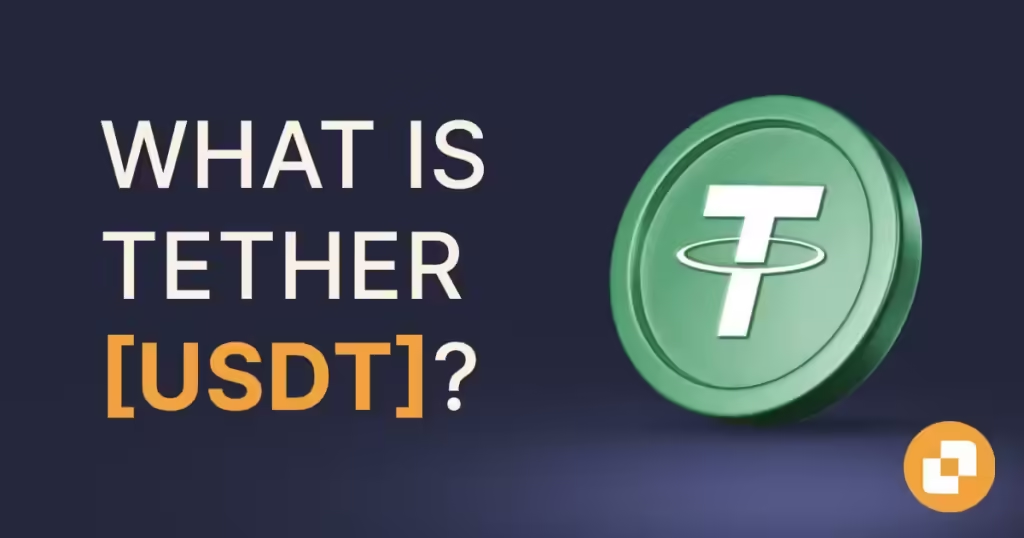The Best USDT Flasher in 2025: A Comprehensive Guide
Table of Contents
- Introduction
1.1 The Growing Importance of USDT in Crypto
1.2 What is a USDT Flasher?
1.3 Why 2025 is a Critical Year for Flash USDT Tools - Understanding USDT Flashing
2.1 Defining “Flashing” USDT
2.2 Key Differences Between Flashers and Traditional Wallets
2.3 How Flash USDT Software Works on Different Blockchains - Key Features of the Best USDT Flasher
3.1 High Transaction Limits and Scalability
3.2 Multi-Chain Compatibility (TRC20, ERC20, BEP20)
3.3 Full Confirmations and Spendability
3.4 Extended Validity for Flashed USDT
3.5 Security, Privacy, and Compliance
3.6 User-Friendly Interface and Robust Support - Why USDT Flashers Are Essential in 2025
4.1 Meeting Institutional and High-Volume Needs
4.2 Enhancing Liquidity and Market Responsiveness
4.3 Navigating Regulatory Landscapes
4.4 Strategic Advantages for Traders and Businesses - Evaluating and Choosing the Best USDT Flasher
5.1 Criteria for Selection (Speed, Stability, Security)
5.2 Verifying Credentials, Reviews, and Community Feedback
5.3 Comparing Pricing Models, Licenses, and Refund Policies
5.4 Importance of Trials, Demos, and Customer Support - Security, Compliance, and Future Trends
6.1 Understanding Potential Risks (Hacks, Scams, Fraud)
6.2 Encryption, Secure Cloud Hosting, and Private Key Management
6.3 Regulatory Compliance and Stablecoin Legislation
6.4 Future Outlook: AI-Driven Optimization, Quantum-Resistant Protocols
6.5 Expansion Beyond USDT: Multi-Stablecoin and Multi-Asset Flashers - Step-by-Step: Using a USDT Flasher
7.1 Preparing Your Environment (Hardware, VPS, Wallets)
7.2 Installing and Activating Your Flash USDT Software
7.3 Configuring Limits, Networks, and Addresses
7.4 Executing Your First Flash Transaction
7.5 Verifying Transactions and Troubleshooting - Integrating a USDT Flasher into Your Strategy
8.1 Timing Transactions for Market Volatility
8.2 Arbitrage and Cross-Exchange Opportunities
8.3 P2P and OTC Trading Efficiency
8.4 Scalability for Growing Portfolios and Institutions
8.5 Long-Term Planning and Upgrades - Conclusion
- 20 FAQs about Flash USDT Software or Flash USDT
1. Introduction
1.1 The Growing Importance of USDT in Crypto
As the crypto market matures, stablecoins have emerged as integral components of global trading. Among them, Tether (USDT) leads the pack due to its deep liquidity and widespread acceptance. Traders, investors, and businesses rely on USDT to hedge against volatility, settle trades, and move capital quickly between different exchanges, decentralized platforms, and services.
1.2 What is a USDT Flasher?
A USDT flasher is specialized software designed to efficiently generate and send large volumes of USDT onto various blockchain networks. Unlike conventional wallet tools, these flashers offer advanced capabilities such as splitting large transactions, guaranteeing full confirmations, and keeping flashed USDT spendable for an extended period. By “flashing” USDT, users can streamline the process of transferring huge sums without waiting hours or days for sluggish confirmations.
1.3 Why 2025 is a Critical Year for Flash USDT Tools
2. Understanding USDT Flashing
2.1 Defining “Flashing” USDT
“Flashing” USDT means rapidly sending USDT with full confirmations onto the blockchain in a manner that appears instantly and remains spendable for a set duration. Instead of moving funds in small, repetitive steps, a flasher allows large, single-step transactions that can be easily traced and verified.
2.2 Key Differences Between Flashers and Traditional Wallets
Traditional wallets let you store and transfer crypto but usually lack features like splitting transactions, extending the validity of transferred funds, or ensuring immediate spendability. A flasher, however, focuses on high-volume, rapid, and fully confirmed transactions optimized for trading and liquidity management.
2.3 How Flash USDT Software Works on Different Blockchains
USDT exists on multiple networks—ERC20 (Ethereum), TRC20 (Tron), and BEP20 (Binance Smart Chain) among others. A top flasher supports these chains seamlessly, allowing you to choose the network that offers the best speed, fees, and liquidity. This flexibility ensures you’re never stuck on a congested chainhttp://tether.to.

3. Key Features of the Best USDT Flasher
3.1 High Transaction Limits and Scalability
A best-in-class flasher can handle daily volumes in the millions of USDT. This scalability is crucial for hedge funds, OTC desks, or high-net-worth individuals needing to move large sums swiftly.
3.2 Multi-Chain Compatibility
By supporting multiple blockchains, the flasher grants you freedom to route funds through less congested networks. This ensures that you aren’t limited to a single ecosystem.
3.3 Full Confirmations and Spendability
The best flash USDT software ensures that once you flash funds, they appear fully confirmed and spendable. No more unconfirmed transactions lingering for hours—your recipients can use the funds almost immediately.
3.4 Extended Validity for Flashed USDT
Some flashers let the flashed USDT remain valid and fully recognized for days or even months. This extended timeframe offers strategic flexibility for liquidity provisioning, gradual sales, or timely trades.
3.5 Security, Privacy, and Compliance
Cutting-edge encryption, secure cloud hosting, and private key management are non-negotiable. Also, as stablecoin regulations evolve, compliance features become essential, ensuring you operate within legal frameworks.
3.6 User-Friendly Interface and Robust Support
The best tools simplify complex operations into intuitive dashboards and provide 24/7 support. Clear instructions, tutorials, and responsive customer service guarantee smooth adoption.
4. Why USDT Flashers Are Essential in 2025
4.1 Meeting Institutional and High-Volume Needs
As institutions step into crypto, large transactions become routine. A flasher helps them deploy or relocate capital instantly, improving operational efficiency and mitigating the risk of lost opportunities.
4.2 Enhancing Liquidity and Market Responsiveness
Liquidity is the lifeblood of crypto markets. By flashing USDT quickly, you can inject liquidity into an exchange or DeFi pool, capitalize on sudden price swings, or balance inventories across platforms.
4.3 Navigating Regulatory Landscapes
Transparent and compliant flashers help users adhere to evolving regulations. This is crucial in 2025, as governments pay closer attention to stablecoins. A reputable flasher might include reporting tools, KYC integration, or compliance checks.
4.4 Strategic Advantages for Traders and Businesses
For active traders, a USDT flasher means instantly executing arbitrage trades across multiple exchanges. For businesses, it may mean faster supplier payments or settling invoices in minutes instead of days.

5. Evaluating and Choosing the Best USDT Flasher
5.1 Criteria for Selection (Speed, Stability, Security)
Focus on tools that deliver speed without sacrificing security. Check that the flasher can handle peak volumes and still provide stable performance.
5.2 Verifying Credentials, Reviews, and Community Feedback
Research user testimonials on forums, social media, and industry groups. Tools with proven track records, positive reviews, and active communities are less likely to disappoint.
5.3 Comparing Pricing Models, Licenses, and Refund Policies
Flashers often come in tiers: trial, basic, premium. Ensure you understand daily limits, validity periods, and whether lifetime access is offered. Transparent pricing and a fair refund policy indicate a provider’s confidence.
5.4 Importance of Trials, Demos, and Customer Support
A free trial or demo version allows you to test features before committing. Meanwhile, responsive support ensures help is always available, crucial when handling large sums of crypto.
6. Security, Compliance, and Future Trends
6.1 Understanding Potential Risks
No tool is immune to hacks or scams. Always store private keys securely, verify official websites, and remain cautious of suspicious deals.
6.2 Encryption, Secure Cloud Hosting, and Private Key Management
Look for AES-256 encryption, reputable cloud hosts, and possibly hardware security modules. Keeping keys offline or in trusted hardware wallets reduces vulnerabilities.
6.3 Regulatory Compliance and Stablecoin Legislation
As stablecoin frameworks mature, flashers that integrate compliance checks or allow KYC for higher limits become invaluable. Regulatory-friendly solutions may foster trust with counterparts.
6.4 Future Outlook: AI-Driven Optimization and Quantum Resistance
AI could predict network congestion, optimizing transactions for minimal fees. Longer term, quantum-resistant cryptography may become standard, future-proofing your operations.
6.5 Expansion Beyond USDT
As stablecoins proliferate, flashers may add support for other tokens like USDC, DAI, or BUSD. Multi-stablecoin flashers enable diversified liquidity strategies.

7. Step-by-Step: Using a USDT Flasher
7.1 Preparing Your Environment
A stable internet connection, updated OS, and a VPS (optional) ensure smooth operation. Also, have your wallet addresses and keys ready.
7.2 Installing and Activating Your Flash USDT Software
Download from the official source, enter your license key, and follow the setup wizard. Some tools provide video tutorials or one-on-one onboarding sessions.
7.3 Configuring Limits, Networks, and Addresses
Set daily volume caps, select the blockchain (TRC20, ERC20, or BEP20), and specify recipient addresses. Also, consider enabling two-factor authentication for added security.
7.4 Executing Your First Flash Transaction
Start small—send a test amount to verify speed, confirmations, and spendability. Once satisfied, proceed with larger transfers confidently.
7.5 Verifying Transactions and Troubleshooting
Check blockchain explorers to confirm status. If issues arise, consult FAQs, user guides, or reach out to support staff. Often, a quick fix resolves common hurdles.
8. Integrating a USDT Flasher into Your Strategy
8.1 Timing Transactions for Market Volatility
Time your flashes during low network congestion or when market conditions favor quick repositioning. Strategic timing can maximize profits.
8.2 Arbitrage and Cross-Exchange Opportunities
Instant USDT availability lets you exploit price differences between platforms. Rapid flashes help capture spreads before they vanish.
8.3 P2P and OTC Trading Efficiency
For OTC desks, immediate confirmations build trust with counterparties. P2P trades become smoother, reducing friction and building reputation.
8.4 Scalability for Growing Portfolios and Institutions
As your trading volume grows, a high-capacity flasher scales with you. Upgrade licenses or add features as you expand your operations.
8.5 Long-Term Planning and Upgrades
Staying updated with the latest software versions and exploring beta features ensures you remain ahead. Continuous improvement is key in a fast-evolving market.
9. Conclusion
In 2025, USDT flashers are no longer niche tools. They’re essential instruments for anyone serious about participating in a dynamic crypto economy. By choosing a robust flasher, you gain access to instant liquidity, flexible multi-chain operations, extended validity, and strong security—all crucial factors in a world where speed and efficiency define success.
Whether you’re a seasoned trader, a business operator handling large settlements, or an institution allocating digital capital, a reliable Flash USDT software solution can drastically enhance your strategies. Embrace the technology, prioritize security and compliance, and unlock new opportunities that set you apart in the ever-competitive crypto landscape.

20 FAQs About Flash USDT Software or Flash USDT
1. What exactly is Flash USDT software?
Flash USDT software is a specialized tool that enables large, rapid USDT transactions with full confirmations, often providing additional features like splitting amounts and extended spendability periods.
2. How does flashing USDT differ from a normal USDT transfer?
Flashing prioritizes speed, full confirmations, and ease of handling large volumes. Normal transfers may require multiple confirmations and aren’t optimized for high-volume, instant spendability.
3. Is using Flash USDT legal and compliant?
Yes, using flashers is generally legal. However, regulations vary by jurisdiction. Opt for flashers with compliance tools or consult legal advisors for larger-scale operations.
4. Can I use Flash USDT tools for multiple blockchain networks?
Many top flashers support TRC20, ERC20, BEP20, and potentially other networks, allowing you to choose the best chain for your needs.
5. Are Flashed USDT funds fully spendable immediately?
Yes, a key advantage is that recipients can often use flashed USDT instantly, without waiting for extended confirmations.
6. What transaction limits do these tools support?
High-quality flashers may allow daily volumes of up to millions of USDT. License tiers and pricing plans determine your exact limits.
7. How secure is Flash USDT software?
Reputable providers use advanced encryption, secure hosting, and frequent updates. Always choose well-reviewed solutions and store your private keys securely.
8. Can I try a USDT flasher before buying a full license?
Many providers offer trial licenses or demos, so you can test performance, speed, and interface before committing.
9. How do flashers help with arbitrage trading?
Arbitrage requires quick capital movement. Flashers enable near-instant transfers, letting you seize price differences between exchanges swiftly.
10. What if I encounter technical issues or transaction failures?
Reliable flashers provide 24/7 support, documentation, and community forums. Most common problems are resolved with basic troubleshooting steps.
11. Can businesses use flashers for payroll or supplier payments?
Yes, businesses can settle large amounts of stablecoins instantly, streamlining cross-border payments and improving cash flow management.
12. Are there compliance features for institutions?
Some flashers integrate KYC, AML checks, and reporting tools, making them suitable for institutional clients who must meet regulatory standards.
13. Can I flash other stablecoins besides USDT?
While this guide focuses on USDT, some flashers now support multiple stablecoins like USDC or DAI, broadening your options.
14. How long can flashed USDT remain valid?
Depending on the software, flashed USDT can stay valid and fully recognized for weeks or even months, offering strategic flexibility.
15. Do flashers work offline?
Most flashers require an internet connection to interact with blockchain nodes. However, you can manage private keys offline for added security.
16. What are the hardware requirements?
Basic hardware suffices for most desktop clients. For higher reliability, a VPS or dedicated server might be recommended, especially at institutional scales.
17. Can I integrate the flasher with trading bots?
Yes, many flashers provide APIs that facilitate integration with trading bots, allowing automated strategies and timely executions.
18. How do I know if a flasher is reputable?
Check user reviews, security audits, community forums, and social media presence. Reputable providers often have an established track record.
19. Is it possible to get a refund if I’m not satisfied?
Many vendors offer a refund policy or satisfaction guarantee. Always review the terms before purchasing a premium license.

